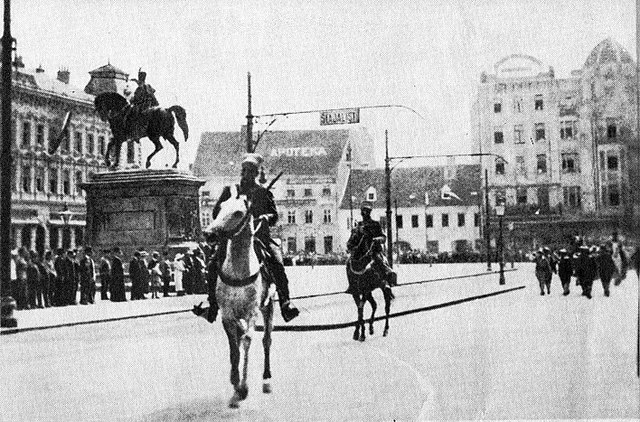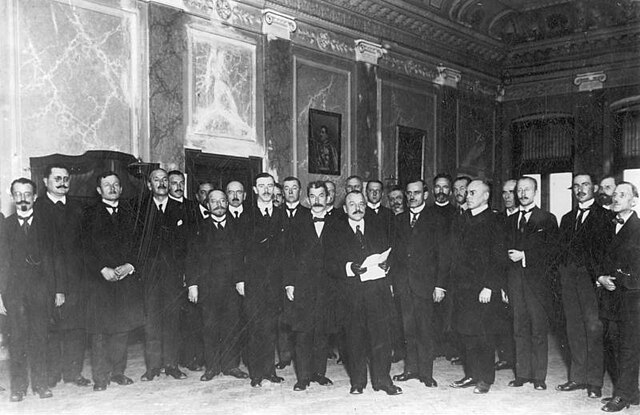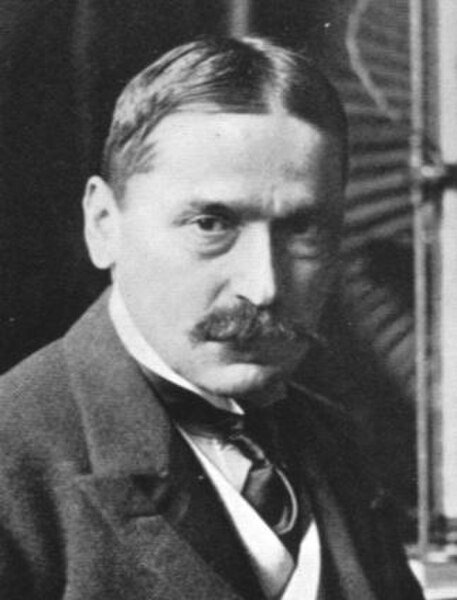Alexander I of Yugoslavia
Alexander I, also known as Alexander the Unifier, was King of the Serbs, Croats and Slovenes from 16 August 1921 to 3 October 1929 and King of Yugoslavia from 3 October 1929 until his assassination in 1934. His reign of 13 years is the longest of the three monarchs of the Kingdom of Yugoslavia.
Alexander I of Yugoslavia
Queen Maria with two of her children, Tomislav and Andrej
A wartime postcard of Alexander
Prince Regent Alexander on the Macedonian front in 1916.
The Kingdom of Yugoslavia was a country in Southeast and Central Europe that existed from 1918 until 1941. From 1918 to 1929, it was officially called the Kingdom of Serbs, Croats, and Slovenes, but the term "Yugoslavia" was its colloquial name due to its origins. The official name of the state was changed to "Kingdom of Yugoslavia" by King Alexander I on 3 October 1929.
Celebrations in Zagreb during the formation of the National Council of the State of Slovenes, Croats and Serbs, October 1918
Serbian Army in Zagreb's Ban Jelačić Square in 1918
Delegation of the National Council of the State of Slovenes, Croats and Serbs led by Ante Pavelić reading the address in front of regent Alexander, 1 December 1918
Mihajlo Pupin, Serbian physicist and physical chemist. He influenced the final decisions of the Paris Peace Conference when the borders of the Kingdom were drawn.








